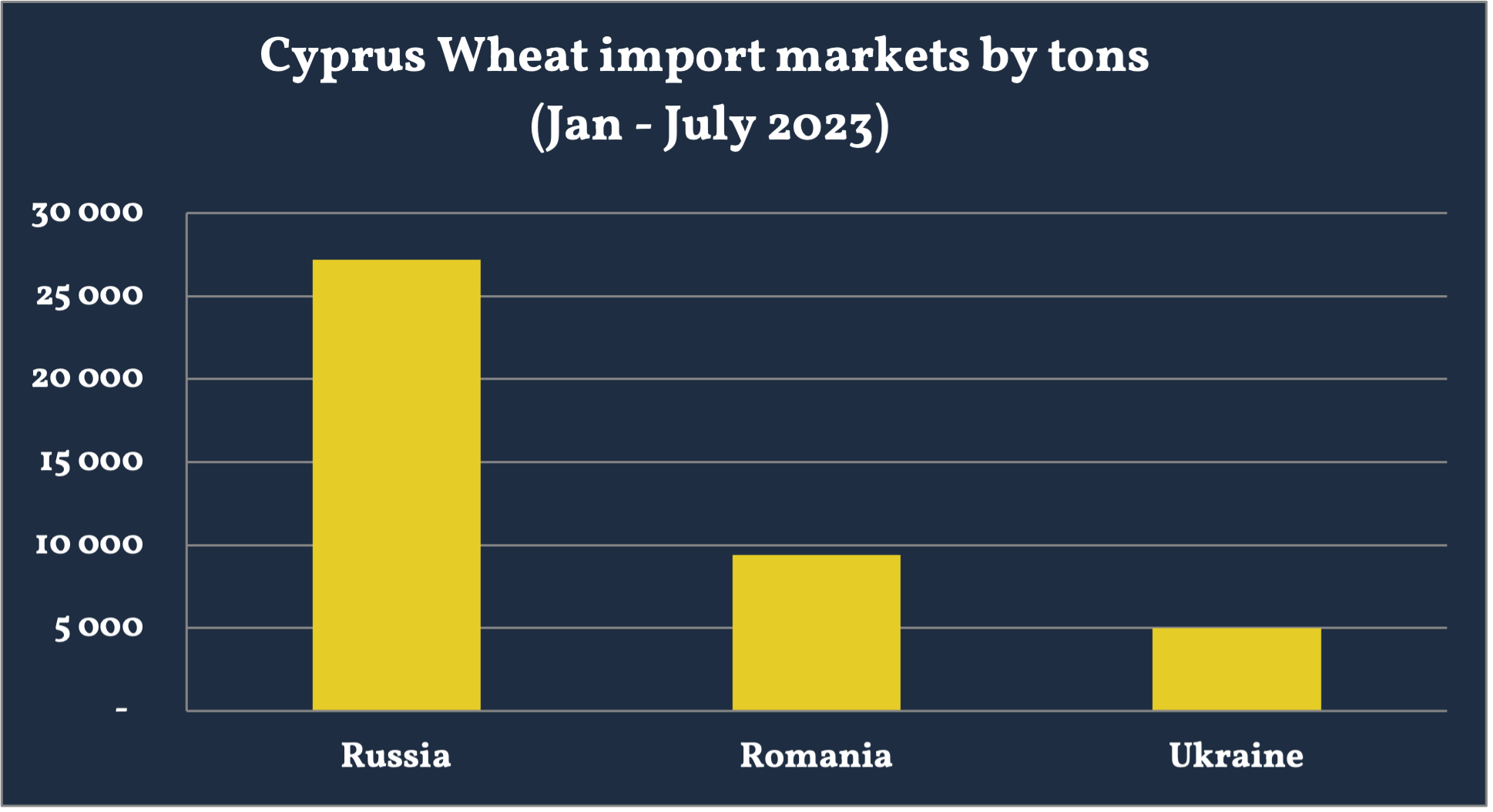Cyprus Wheat Market – Small, But Attractive for EU suppliers
Talk to our team about AgFlow's offering →
Reading time: 2 minutes
In the world of agricultural commodities, few grains hold as much significance as wheat. As a staple food for a significant portion of the global population, its demand and supply dynamics can influence economies, trade policies, and even geopolitical strategies. For a country like Cyprus, nestled in the eastern Mediterranean, wheat imports play a pivotal role in its food security and economic stability. But what factors have impacted Cyprus wheat imports from January to July 2023? Let’s delve into the intricacies of this topic.
The Geographical and Climatic Trade-offs
With its Mediterranean climate, Cyprus has always faced the challenge of balancing its agricultural potential with the need to import essential commodities. But why is this balance so crucial? Imagine a seesaw. You have the island’s limited arable land and water resources on one side. On the other, the growing population and its increasing demand for wheat-based products. The equilibrium is delicate, and even slight changes in climatic conditions can tip the balance.
Economic Implications and Global Market Dynamics
In 2023, global wheat prices have seen fluctuations due to various reasons, from changing weather patterns in major wheat-producing regions to geopolitical tensions affecting trade routes. How does this impact Cyprus? Think of it as a domino effect. When a major wheat-producing country faces a drought, it reduces its export capacity. This, in turn, can drive up global prices, making it more expensive for countries like Cyprus to import.
One might ask, “Why doesn’t Cyprus diversify its wheat import sources?” It’s a valid question, akin to not putting all your eggs in one basket. However, diversification comes with its own set of challenges. Different wheat varieties from various regions might have distinct qualities, affecting the end products. Moreover, establishing new trade relations and ensuring consistent quality can be a time-consuming and resource-intensive process.
Balancing Quality with Quantity
In a metaphorical tightrope walk, Cyprus has to ensure that the wheat it imports is not just in the right quantities but also of the right quality. This is where the trade-offs come into play again. Should the country opt for cheaper wheat, potentially compromising on quality, or should it invest in premium varieties, which might be costlier but ensure better products for its citizens?
According to AgFlow data, Cyprus imported 27,200 tons of Wheat from Lithuania in Jan – July 2023, followed by Romania (9,400 tons) and Ukraine (5,000 tons). Total imports hit 41,600 tons in Jan – July 2023. Cyprus was purchasing large amounts of Wheat from Russia, such as 25,000 tons.
In 2021, Cyprus imported Wheat worth $39.8 million, becoming the 114th largest importer of Wheat in the world. At the same year, Wheat was the 67th most imported product in Cyprus. Cyprus imports Wheat primarily from: Russia ($11.8 million), Romania ($7.37 million), Austria ($4.7 million), Greece ($3.9 million), and Bulgaria ($3.62 million).

The Road Ahead
The first seven months of 2023 have shown that Cyprus’s wheat import dynamics are influenced by a myriad of factors, both internal and external. The challenges are manifold, but so are the opportunities. By understanding the global market, adapting to changing conditions, and making informed decisions, Cyprus can ensure that its wheat imports remain both sustainable and beneficial for its people.
In conclusion, the world of wheat imports, especially for a country like Cyprus, is like a complex puzzle. Every piece, whether it’s climate, global market dynamics, or trade relations, has to fit perfectly to paint a complete picture. And while challenges abound, with the right strategies and a keen understanding of the market, Cyprus can navigate the wheat import maze with finesse and foresight.
Try AgFlow Free
Access Free On Updates for Corn, Wheat, Soybean,
Barley, and Sunflower Oil.
No Credit Card Required & Unlimited Access In Time

